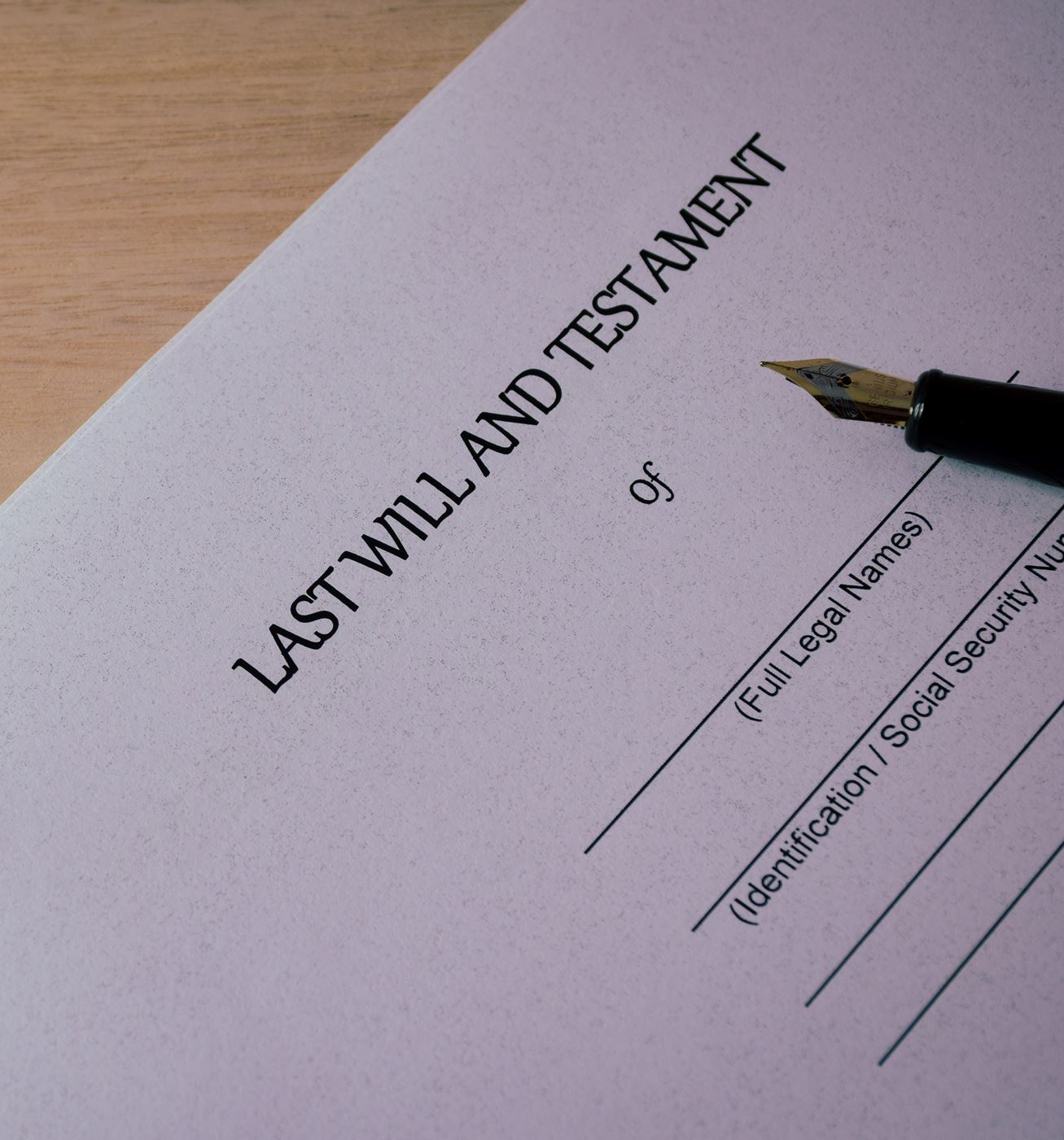Get a professionally drafted Will to make sure your estate is distributed in a cost-effective, timely way.
Streamline Your Estate’s Administration
Making a Will isn’t something you need to do when you retire. Just like insurance, it’s something every Australian with assets should have.

Faster Administration
Without a Will, your loved ones might not receive your assets for months or even years.

Lower Costs
Administering estates without Wills costs more in legal fees than administering estates with proper estate planning.

Lower Risk of Claims
Being clear about who gets what and why can help you minimise the risk of family provision claims.
The Importance of Having a Will
Most people who die don’t think that they will – at least, not yet.
It’s part of being human: we always assume we’ll have more time.
Unfortunately, death is always unexpected, but that doesn’t mean we have to be unprepared.
A Will is insurance.
It’s a way to provide for your loved ones and protect your legacy if the worst does happen.
Without a Will, you’ll die intestate, opening your estate up to expensive administration processes and divisive family provision claims.
In the worst-case scenarios, legal costs consume whole estates, and the families left behind get nothing.
A Will isn’t a luxury or an optional extra.
It’s home insurance in a bushfire zone – a way to safeguard your future against the inevitable.


How to Prepare a Will
Before you prepare a Will, it’s a good idea to have an honest conversation with your solicitor.
They can help you make informed decisions about your estate planning with accurate, personalised advice.
Once you know how you’d like to approach your Will, make lists of your assets and liabilities and propose beneficiaries and executors.
Your solicitor can help you draft a Will that helps you leave your assets to the right people.
Once your Will is complete, you’ll need to sign it in front of at least two witnesses for it to be legally binding (one of these witnesses must be a lawyer or a JP).
Your lawyer will also need to make sure that you have testamentary capacity – that is, the ability to understand the decisions you’re making.
Can I Prepare a Will Without a Lawyer?
Many online websites offer free DIY Will-making ‘kits’, promising that you won’t need to spend money on a lawyer.
Unfortunately, this is only partially true – you won’t need to spend money on a lawyer, but, because DIY Wills are almost never drafted correctly, your estate will pay for an expensive, time-consuming administration.
DIY Wills rarely meet the standards required in legislation for simple Wills, let alone complex Wills that deal with testamentary trusts, SMSFs, or tax considerations.
Rather than wasting time and money on a Will that is likely to be invalid or incomplete, pay a solicitor to do it properly.


What Are the Consequences of Dying Intestate?
If you die intestate (that is, without a Will), you won’t have a say in how your assets are distributed.
Instead, the Court will make those decisions for you under the intestacy laws of Victoria.
These laws are complex, but, generally, the following people will receive your estate in this order:
|
|
Your estate will be administrated by a court-appointed administrator, whose appointment can be a costly, time-consuming process.
If you own a business, dying intestate may mean that your business will be forced to stop operating until an administrator can be appointed.
Finally, if Victoria’s intestacy laws do not adequately provide for the right people, you could be at risk of family provision claims, which can be divisive and enormously expensive.
Success Story
”Jashan was understanding and went above and beyond to help me. Thank you very much Jashan, much appreciated.
Kim Kilian
Other Documents You Need

Enduring Power of Attorney
An enduring power of attorney (EPOA) lets someone you trust make personal and financial decisions for you if you lose decision-making capacity.

Medical Treatment Decision Maker
Appointing a medical treatment decision maker gives someone you trust the ability to make decisions about your healthcare if you can’t.

Advance Care Directive
An advance care directive records your preferences for future healthcare, which can be helpful if you lose decision-making capacity.

Statement of Wishes
A statement of wishes accompanies your Will, explaining why you’ve made certain decisions and acting as a guide for your executors.
Your Wills and Estates Law Team
Jesse LaGreca
Partner | Principal Solicitor
Jesse is a highly experienced commercial solicitor admitted at both the Supreme Court of Victoria and the High Court of Australia.
He excels at partnering with growing organisations to help drive sustainable growth.

Practical Guides to Wills and Estates
If you’re thinking about making or updating a Will, reading up on the basics of Wills and estate planning can be helpful.
Get started with our library of easy-to-read articles and guides.
Making a Will FAQs
How much does it cost to make a Will in Victoria?
Wills can vary hugely in cost depending on your needs. If your estate planning is straightforward and only requires a simple Will (which divides your estate between beneficiaries on a lump-sum or percentage basis), you might expect to pay a few hundred dollars.
If your estate planning is more complicated, requiring extensive legal advice or structures like testamentary trusts, you might pay up to several thousand dollars. The easiest way to get a quote for your specific needs is to book a free 30-minute consultation with a solicitor from our estate planning team. They can walk you through exactly what’s involved and how much it’s likely to cost.
What information do I need to make a Will?
To make a Will with the help of an experienced Wills and estates solicitor, you’ll need the following information:
- A list of all your assets
- A list of all your liabilities
- Your proposed executor(s)
- Your proposed beneficiaries
- Your proposed guardians (if you have dependents)
Keep in mind that you don’t need to have all this information ready the first time you speak with your solicitor. Normally, the easiest way to approach making a Will is to book a 30-minute free consultation, discuss your options and what information you need, and then make a second appointment to start your estate planning.
What is estate administration?
Estate administration is the act of distributing a deceased person’s estate in accordance with their Will. If they have no Will, the estate will be administered under the relevant jurisdiction’s laws of intestacy.
If executors have been nominated in a Will, that person or persons will administer the estate. If no executor has been named or a Will does not exist, the Supreme Court of Victoria will appoint an administrator.
Before an estate can be administered, the estate’s executors must receive a grant of representation (a grant of probate or letters of administration).
I’m not going to die for years. Why do I need a Will?
Although it’s nice to imagine that you’ll live to 90, the reality is that no-one knows when they’re going to die. A Will is insurance against the unexpected. By making a legally valid Will now, you’re protecting your family and your legacy from the costs of intestacy if something does happen.
My children all get along. Won’t they just divide my estate fairly between themselves?
It’s easy to think that, because your family members love each other and get along, you can trust them to divide your estate fairly when you die.
Unfortunately, that’s not normally the case. Money often brings out the worst in people, and even cohesive, loving families can become divided over a deceased person’s estate.
Conflicts don’t always arise from greed or jealousy, either. Often, disputes can be well-intentioned, occurring because family members want to do the right thing but aren’t sure exactly what your wishes were. They may also be influenced or pressured by third parties to make certain choices that aren’t in accordance with what you would want.
As the testator, you can simplify things for your loved ones by being explicit about your intentions through a legally valid Will and a statement of wishes. You can make decisions about who gets what and clearly explain your reasons for those decisions. This can help reduce the risk of family provision claims and help provide peace of mind for your loved ones.





